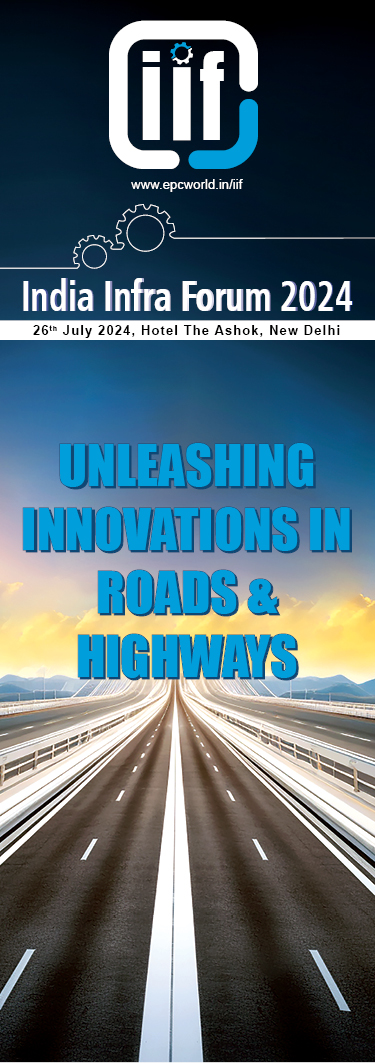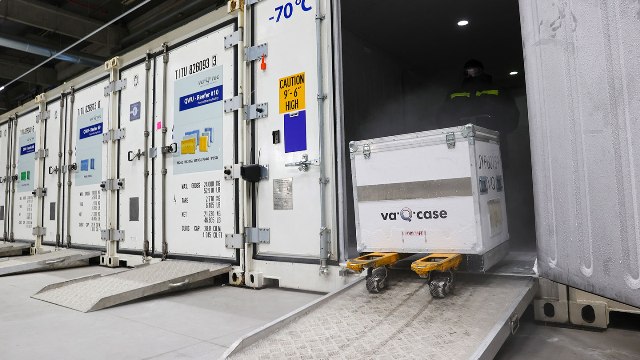by Aditya Vazirani, CEO, Robinsons Global Logistics Solutions
Even as the country gears up for the first million doses of the Covid-19 vaccine by January 2021, the massive efforts announced by the government to ensure the efficacy of this monumental initiative, is already driving transformation in the logistics and cold supply chain sector in the country. This is a massive and one of its kind initiative that is going to test the resolve, efficacy, trainability, co-ordination, IT and operational muscle and the government’s ability to orchestrate a co-ordinated, efficient, and smooth vaccine storage and distribution plan. Some of the key challenges and features that make this a unique endeavour include:
Mass Drive: There has never before been such a massive adult vaccination drive in the country and the sheer scale of it makes it an unprecedented task ahead that needs to be carried out with utmost efficiency and accuracy. Further, the fact that the vaccine needs a repeat dosage after a set duration, makes this a complex process that needs an equally complex follow up
Temperature Sensitivity: The vaccines require to be transported at well-regulated temperatures from the time of being packaged to being delivered to hospitals, making a uniform and thoroughly regulated cold storage and distribution as a non-negotiable prerequisite
Skilled Workforce: Apart from logistics and cold supply chain, the vaccine transportation and administration also requires a highly skilled set of medical and logistic staff; that is aware about the nuances and strict protocols required to maintain the efficacy of the vaccine during transportation and effectively handle and administer the vaccine once it reaches its destination
Collaborative partnerships: In order to accomplish this task, the government will be calling upon several stakeholders, making this one of the most co-ordinated and collaborative partnership between public and private organisations, spread across the length and breadth of the country
While in line with the above requirements, the government has recently announced plans to strengthen the cold storage facilities infrastructure, which includes 29,000 cold chain points across the country, 240 walk-in coolers, 70 walk-in freezers, 45,000 ice-lined refrigerators, 41,000 deep freezers and 300 solar refrigerators, all of which will be provided to aid in creating a robust cold distribution and supply chain network for the vaccine. While this announcement has been a welcome one for both, health and logistics players, there still remains a lot to be done to ensure the herculean task can reach fruition. Listed here are some factors that, if considered and adopted, can make this a massive success.
- Leveraging smart technology: India still needs to be mindful of the ongoing Covid wave and hence, ensure precautionary measures by minimising human employment, and replace them with technology enabled services, wherever possible. While there is technology enablement to ensure transparency and real time update of the distribution process initiated by the government, a lot more can be done to ensure efficacy and accuracy during the entire undertaking. Leveraging the best of emerging technology and smart IoT devices for temperature regulation, tracking, cold storage monitoring, etc, can go a long way in minimising human intervention and maintaining viability of the vaccines. This could be an opportunity to showcase best of health tech’s and logistic tech’s prowess of India as a country and what it can achieve when driven by excellence and purpose.
- Sustainable and mindful use of resources: Although a large scale initiative like this demands enormous manpower and resources, a mindful and conscious approach to resources will help arrest spread of the pandemic, optimise energy while also reducing chances of human error. Sustainable options such as a wide scale use of solar powered cold storage set-ups and portable refrigerators and mindful packaging can help optimise energy consumption and control the waste generated out of this task whilst ensuring resources in terms of money and time can be optimised. Employing locally trained staff, setting up solar power infrastructure, operating in shifts to ensuring a backend infrastructure of recycling the used vials/ packaging etc, is equally important to ensure such a huge cold storage and distribution endeavour doesn’t translate into an energy crisis or a waste management nightmare. There is already a considerable impact on the environment with single use PPE kits, masks and other items used to combat virus. With a considerable time frame ahead, the planning is critical to ensure the protection of the environment is considered.
- Focused manpower development: Given the targeted efforts towards the vaccine distribution plan, it is extremely important to also focus on the manpower development that will be associated with the task, at various levels. While training cold storage and distribution task force in handling the vaccine and training healthcare administrators in the basics of handling the vaccine during transit, are being taken care of, there also needs to be a focus on training the ancillary staff. Truck drivers and cargo/ consignment handlers to on-ground staff that will be responsible in handling the vaccine during any given point of its lifecycle is vital to ensure there are no slip ups that can damage the viability of the vaccine. Accordingly, a short term training program that allows a certificate or endorsement of sorts, may be rolled-out, and only certified or endorsed personnel be allowed to be a part of the entire supply chain. This can help minimise human errors and accidents.
- Localisation of efforts: Given the length and breadth of our country, localisation is going to be the key to effective administration of the vaccine. While local governments and health authorities are forming task forces to ensure effective distribution, partnership with local logistics SME/ MSME and third party logistic service providers for cold supply chain support, can be a key to minimising efforts and speeding up the processes. After a thorough application and verification process, these 3PL and 4PL entrepreneurs can lead the way to help build a robust, collaborative distribution network.
This is unarguably set to be one of the largest, nationwide collaborative effort for Indian healthcare, technology and logistic sector, driven by the Indian government, and is set to alter not only the course of the pandemic, but also the entire heath and pharmaceutical supply chain, especially the cold storage and distribution network.






